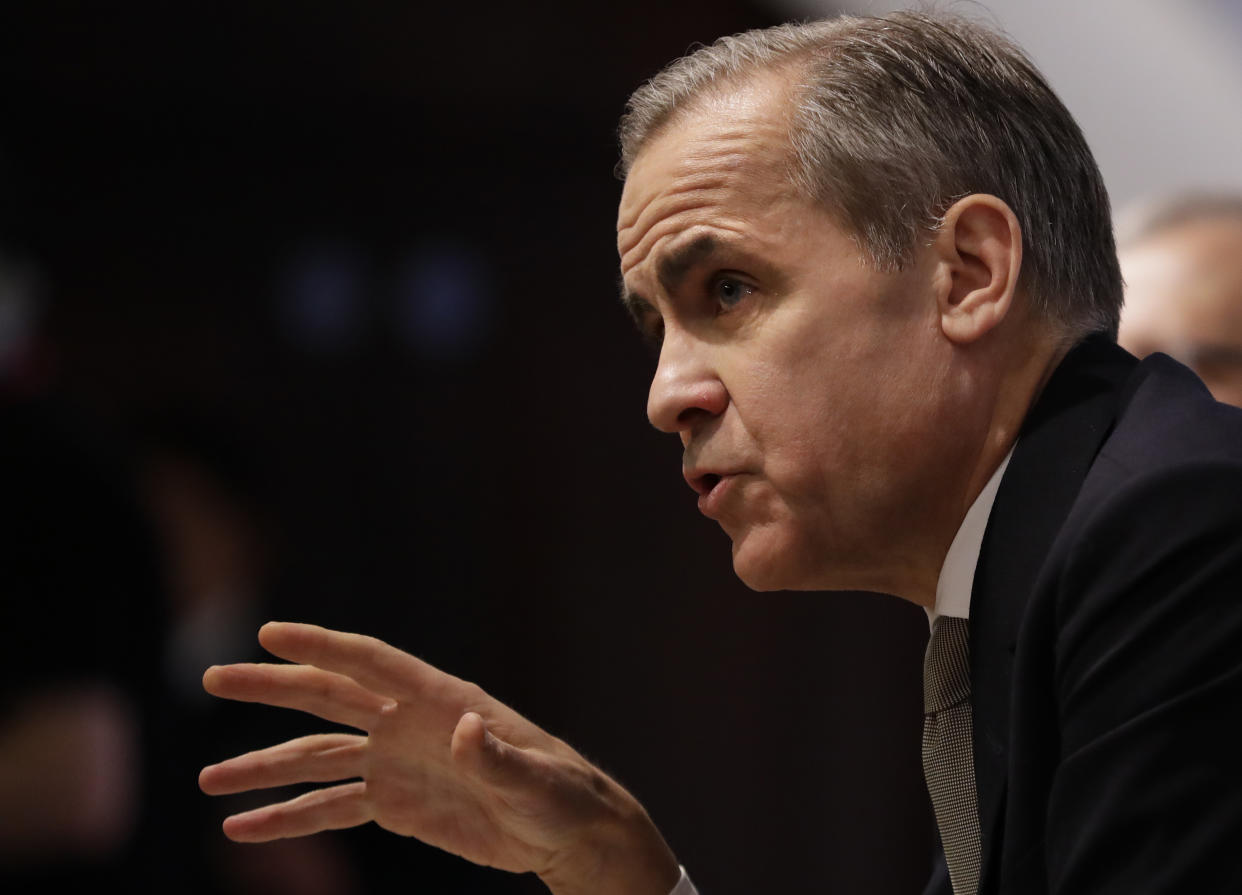Bank of England holds interest rates but slashes growth forecasts

The Bank of England on Thursday held its benchmark interest rate steady at 0.75%, even as it downgraded economic growth forecasts significantly.
Seven of the bank’s nine-member monetary policy committee (MPC) voted to leave the interest rate unchanged. Two external members, Michael Saunders and Jonathan Haskel, voted for the third time in a row to lower rates.
Traders and analysts had been split on whether the Bank of England would cut interest rates, making Thursday’s decision one of the most eagerly awaited in years.
Explaining its decision, the MPC said uncertainties around Brexit and global trade wars had “receded” in recent weeks.
“Surveys of business activity have picked up, quite markedly in some cases, and investment intentions appear to have recovered,” the committee wrote in its report. “Housing market indicators have strengthened and consumer confidence has increased slightly.”
The pound spiked following the announcement — Mark Carney’s last as Bank of England governor — and climbed by more than 0.4% against the dollar (GBPUSD=X).
Growth downgraded
However, the bank downgraded its growth forecasts. The MPC said it expected GDP to rise by only 0.8% in 2020. It had previously predicted growth of 1.2%.
It also lowered its forecast for 2021 from 1.8% to 1.4%, and said that, on average, the UK economy would grow by only 1.1% over the next three years.
The bank noted that its underlying assumptions hinged on the expectation that there would be “an immediate but orderly move to a deep free trade agreement with the EU on 1 January 2021.”
The bank has long signalled that it expects to increase rates gradually, but in November it softened its language on the prospect of hikes, saying they “might” be necessary if global growth improved and Brexit uncertainty abated.
In a further change of language, the MPC on Thursday dropped its “limited and gradual” guidance and said that if the economy recovers in line with its projections, a “modest” rise in interest rates may be needed to keep inflation in check.
Explaining the adjustment at a press conference following the decision, Carney suggested that the bank was considering only a single rate hike.
“Things are gradual if there are multiple. Things are modest if they are not,” he said.
The bank warned, however, that it may need to take action to reinforce the expected recovery if the “positive signals” from the economy are not sustained, or if inflation remains weak.
‘Greater wiggle-room’
Many analysts had predicted that the Bank would cut rates in the face of weak economic data, including weak retail sales and a shrinking economy. Inflation in December came in lower than expected at 1.3%, hitting a new three-year low and coming in well below the Bank of England’s 2% target.
But others had pointed to signs that there has been a clear, if modest, rebound for the economy in the wake of December’s emphatic election result.
On Thursday, the bank seemed to agree, noting that global business confidence and manufacturing indicators had picked up.
“The most recent indicators suggest that global growth has stabilised, reflecting the partial easing of trade tensions and the significant loosening of monetary policy by many central banks over the past year,” the MPC wrote.
Tej Parikh, the chief economist at the Institute of Directors, said: “There is mounting evidence that the UK economy may have experienced a bit of a post-election bounce, so on balance the bank made the right call to hold interest rates for now.”
Withholding a rate cut, Parikh said, gives the bank “greater wiggle-room” in the future if uncertainty eats into business activity.


